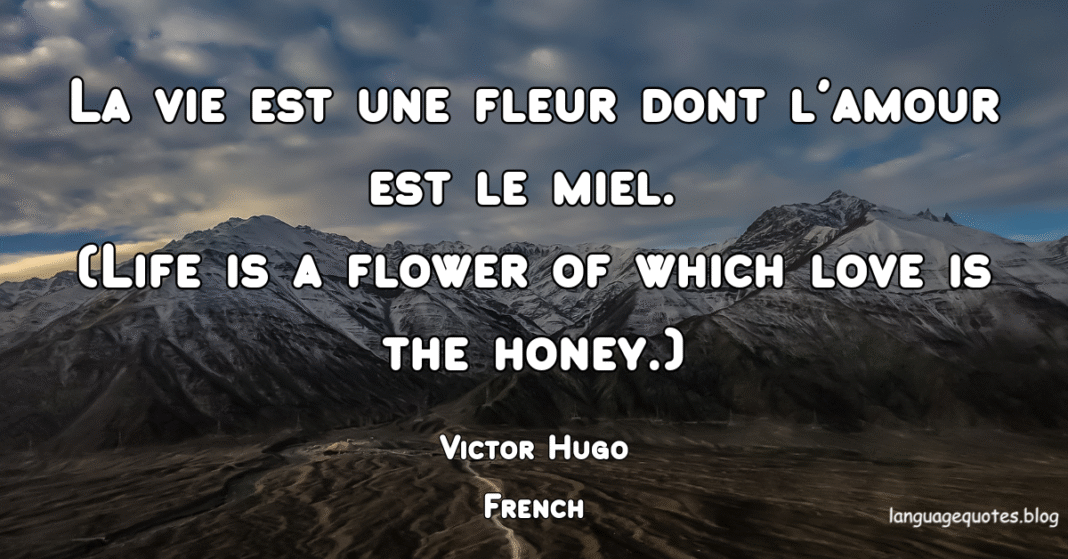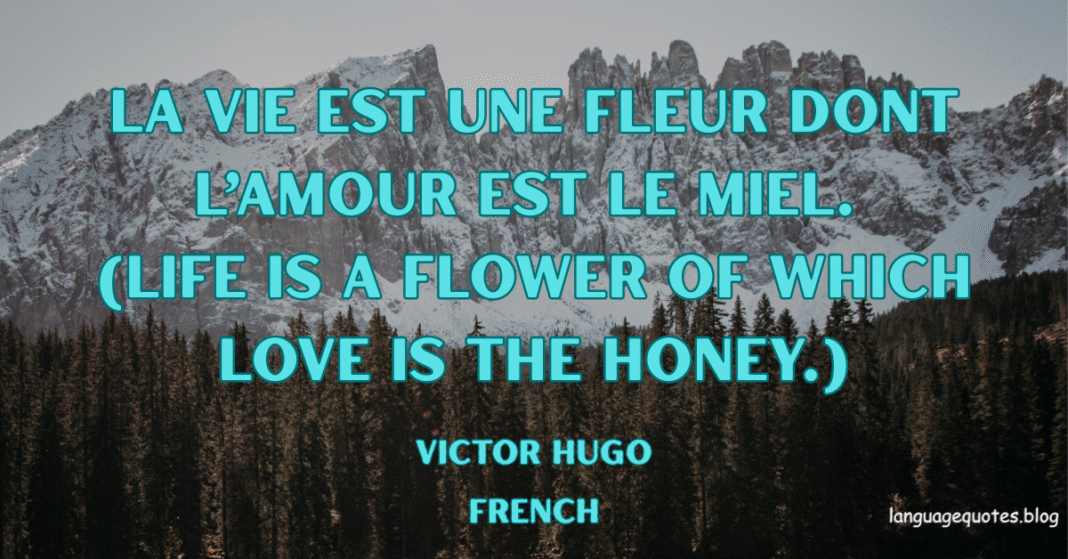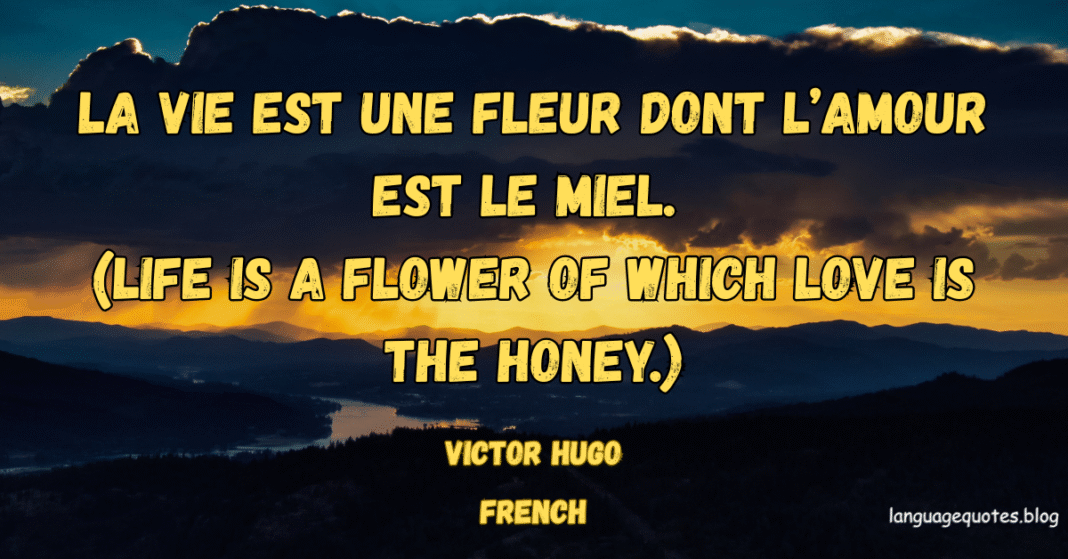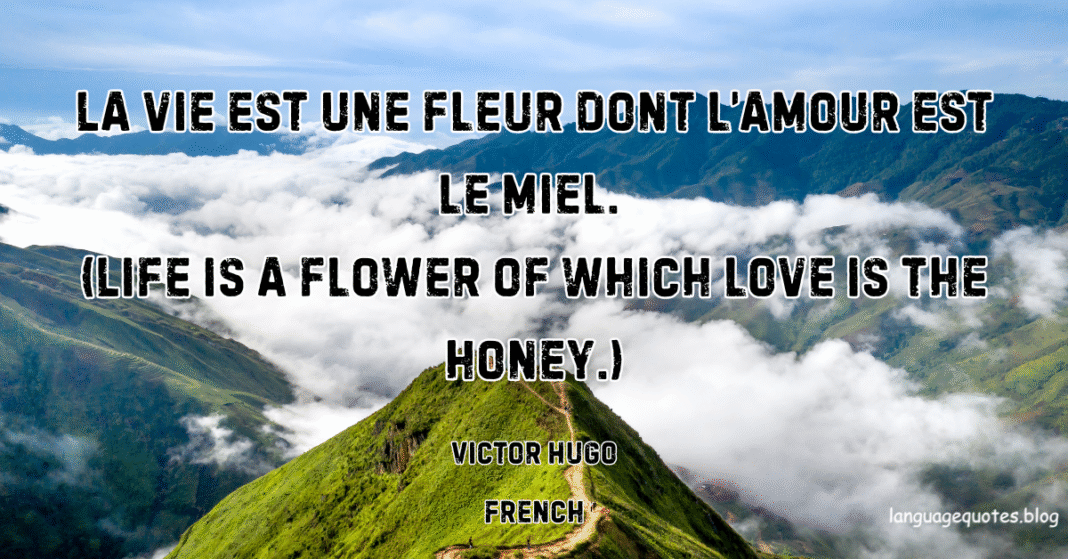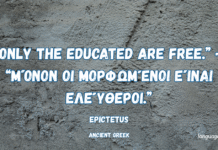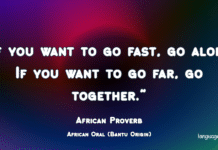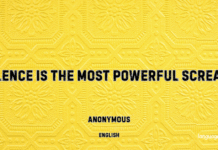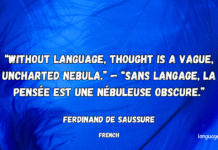(“Life is a flower of which love is the honey.”)
— Victor Hugo
💬 2-Line Comment:
Victor Hugo compares life to a flower, but it’s love that gives it its sweetest essence. A timeless reminder that life blooms most beautifully when nurtured by love.
🌸 Introduction: The Poetry of Life and Love
Victor Hugo, one of the most celebrated literary figures of 19th-century France, had a gift for expressing profound truths with lyrical grace. This quote—originally in French—reflects his romantic, philosophical, and deeply human worldview. “La vie est une fleur dont l’amour est le miel,” when translated, means “Life is a flower of which love is the honey.”
In this tender metaphor, Hugo compares life to a flower—beautiful, organic, and delicate. And just as honey is the sweetest essence produced by a flower, love is portrayed as the sweetest essence of life itself. The quote is both simple and profound, offering us a timeless perspective on what makes life truly meaningful.
🌼 Life as a Blooming Flower
Flowers are universal symbols of life, nature, growth, and renewal. They emerge from the soil, bloom under sunlight, and eventually wither—but not without having shared their beauty and fragrance. Hugo’s comparison suggests that life, too, is a natural unfolding, full of color, growth, fragility, and transience.
By referring to life as a fleur (flower), Hugo invites us to cherish its fleeting beauty. A flower is not permanent, nor is life. But in the time that it exists, it is capable of immense grace, beauty, and purpose. This view encourages mindfulness and gratitude—an awareness of life’s temporary nature and its power to bloom under the right conditions.
🍯 Love as Life’s Sweetest Product
If life is a flower, then love is the honey—the essence, the reward, the nourishment. Honey doesn’t exist without the flower. Likewise, love doesn’t emerge in isolation—it is a result of life’s experiences, relationships, and inner richness.
Hugo’s metaphor suggests that love is the byproduct of a life well-lived. Just as bees extract nectar from flowers to make honey, human souls extract meaning, joy, and tenderness from experiences to form love. Whether it is romantic love, familial love, friendship, or compassion for humanity—love is what sweetens the human experience.
It is through love that we find connection, purpose, and fulfillment. Without it, life may bloom, but it lacks the honey—the sweetness that gives it deeper value.
🧠 Philosophical and Symbolic Depth
Victor Hugo was not just a poet and novelist—he was also a philosopher and social thinker. His works, including Les Misérables and The Hunchback of Notre-Dame, reveal a profound concern for justice, kindness, and the human condition. In this quote, his symbolic imagery reveals a worldview where nature, beauty, and emotion are interlinked.
Flowers and honey are not just metaphors for beauty and love—they are also symbols of balance and harmony in nature. Hugo’s line may also suggest that for life to be truly complete, it must be rooted in the natural cycle of giving and receiving, blooming and sharing. Love, in this sense, is not just something we experience—it’s something we create and pass on.
🌍 Relevance in Modern Times
In today’s world, where speed, productivity, and digital distraction dominate our daily lives, Hugo’s quote is a gentle reminder to slow down and savor the sweetness of life. It’s easy to get caught up in the pursuit of success, material gain, or external validation—forgetting that love, kindness, and connection are the real treasures.
This quote tells us that life is not simply about existing—it is about blooming and offering something beautiful to others. And love, like honey, is something that nourishes not just ourselves, but everyone it touches.
🧘♀️ Emotional and Spiritual Takeaway
There’s also a spiritual element in this quote. It echoes ideas from mysticism, Buddhism, and even Sufism—where love is the divine essence, the spiritual nectar that connects us to the universe or the divine.
By framing love as honey—the product of a flower—Hugo may be suggesting that the purpose of life is to create sweetness, to be a source of love, not merely to receive it. A flower blooms not for itself, but for others to enjoy its beauty and scent. In the same way, we live most fully when we live lovingly—by being present, compassionate, and generous.
💡 Practical Reflection: How to “Live Like a Flower”
So how can we live the wisdom of this quote?
-
Nurture your own bloom: Take care of your health, passions, and dreams.
-
Seek and give love: Cultivate relationships that are built on honesty and kindness.
-
Savor the sweetness: Appreciate small moments of joy, connection, and beauty.
-
Be like the flower: Radiate positivity, and be a source of comfort to others.
-
Make honey: Let your experiences, even the difficult ones, refine you into someone capable of deep love.
In other words, live beautifully and love deeply—that’s the essence of Hugo’s message.
📝 Conclusion: A Legacy of Beauty and Sweetness
“La vie est une fleur dont l’amour est le miel.” This quote by Victor Hugo reminds us that life, while beautiful on its own, becomes truly meaningful when flavored with love. The flower may be fleeting, but the honey it produces can nourish others long after the bloom fades.
In a world full of noise and rush, this quote is a poetic invitation to embrace softness, purpose, and connection. Let your life blossom fully, and let your love be the honey that sweetens the world. In doing so, you honor the wisdom of one of literature’s greatest humanists.


